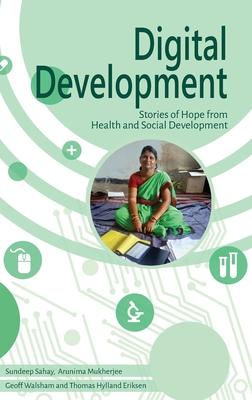There is growing global consensus that the Information and Communication Technologies (ICTs), and particularly the Internet, are providing a new framework and huge opportunities for economic, political and social development. This book explores case studies across India, Kenya, Guatemala, Sri Lanka, and global, comparative settings, and asks what positive impact ICT applications (Health Information Systems, Pandemic response systems, Early Warning and Response Systems, Hospital Information System and Smartphone based Apps) can have on today’s most pressing challenges. The authors use this lens to discuss a wide range of issues facing communities around the world, including public health and pandemic management; the mitigation of ethnic violence and violence against women; the emergence of an informal economy; and the displacement of refugees.
The case studies are analyzed through a wide means-process-ends framework, which is complemented with micro-level observations of people’s experience, such as empowerment, agility and trust within communities. This interplay between the macro framework and micro concepts helps us to understand how and why digital interventions can contribute to positive outcomes, and which stories of hope may inspire other development channels. The lessons inside the book’s pages are important for anyone involved in the research around digital visions for development, as well as for those involved in practical aspects of policy building and practice when deploying these technologies.












